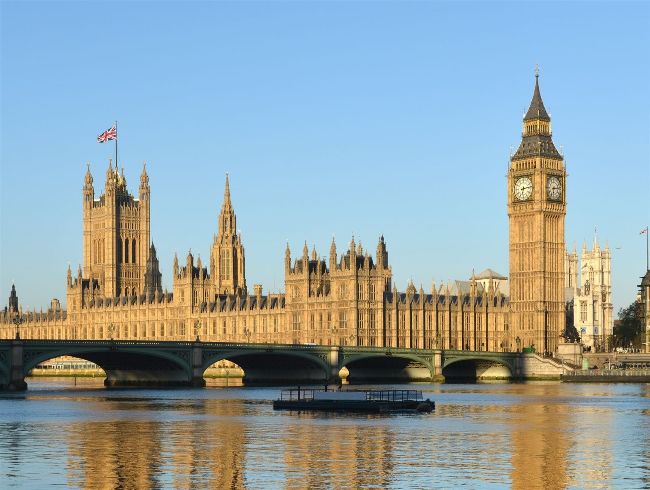Our presbyteries
Thomas Baldwin learns more about the Church of Scotland’s presbytery in England.
(Correct at time of going to press)
IN case you were wondering how long the Church of Scotland has had a presence in England, the Presbytery of England and the Channel Islands has in its possession a record from the then Presbytery of London, dated 1825. Back then, there were eight Church of Scotland congregations in the capital alone.
Today, there are only eight congregations south of the Border in total, and two of them – at Berwick-upon-Tweed and Carlisle – are within Scottish presbyteries.
That leaves the Presbytery of England and the Channel Islands with six: two in London, Newcastle, the Northamptonshire Scottish enclave of Corby (where two churches recently united), Jersey and Guernsey. While they all face a degree of uncertainty in the context of Church reforms, Presbytery Clerk, the Rev Alistair Cumming emphasises that five out of the six are in the 29 per cent of Church of Scotland congregations that contribute enough to cover the costs of a minister.
But the Presbytery’s contribution to the Church’s ministry goes well beyond finance.
“If we were just providing a church for Scots, we might as well pack up and go home,” says Alistair.
“But we have got to look wider than just those congregations. We have 18 chaplains who are members of Presbytery, in healthcare, universities, university lecturers, and military chaplains. So we have a huge ministry in terms of those chaplains. And the churches have school chaplaincies, like churches in Scotland.
“We are also able to access and be involved with the UK Government. We have a chaplaincy to both the House of Commons and the House of Lords.”
The churches provide worship in the Presbyterian tradition to very diverse congregations – people who have moved from Scotland, but also many second and third generation Scots. As Presbyterian churches are very much in the minority in England, they are also a home for many Presbyterians from abroad. “Americans, Canadians, Australians – it really is international,” says Alistair. “The diversity we see in congregations in our presbytery is heartening to see, and that’s something of value that we bring to the Church of Scotland.”
As they are not the territorial churches in their areas, Alistair says the churches have to work hard to show their value within their communities, working ecumenically and with partner organisations.
In London, both St Columba’s and Crown Court Churches are heavily involved with Scotscare (formerly Borderline), the charity which works with Scottish people who fall on hard times in the city. There are many initiatives undertaken by the congregations including St Columba’s which also hosts a night shelter, while Crown Court also opens its doors to the community around Covent Garden.
Meanwhile, the idyllic exterior of the Channel Islands masks a lot of poverty, and the churches are also at work there.
“You get off the ferry in Jersey or Guernsey, and you see all these multi-million pound yachts in the harbour, and you think ‘this is a tax haven, what’s it got to do with the Church?’” says Alistair. “But when you have driven half a mile you start to see evidence of homelessness. And after a mile you come across the first foodbank. “Both the churches are active in the foodbanks and supporting the homeless.

House of Commons
“If we weren’t there, the communities would be worse off than they currently are. And that is recognised – recently Guernsey was singled out by one of the local charities for assistance for making church more accessible for people with disabilities. They have received considerable support from the community.
“The congregations are big in heart, and have a strong missional focus.”
Under the Presbytery allocation, England and the Channel Islands has four full-time Ministers of Word and Sacrament, based at the two London churches and the two Channel Island churches.
St Andrew’s Kirk in Newcastle is linked with St Columba’s in London, 300 miles away, but have an Ordained Local Minister in the form of the Rev Allan Wright, who is also running a Pioneer Ministry for the veterinary community in the North East of England. “The minister from St Columba’s (the Rev Angus MacLeod) goes up on a regular basis, but they are quite self sufficient,” says Alistair.
The Church of Scotland in Corby, legacy of a mass movement of Scots to the steelworks in the area in the 1930s, is under the care of Associate Minister the Rev Scott McCarthy. Discussions about the future of the church in Corby are ongoing, with a linkage to Crown Court in London scheduled for the end of next year.
At Presbytery level, Alistair, an auxiliary minister, combines the unpaid Presbytery Clerk role with a day job, and is also a viceconvener of the Faith Action Programme Leadership Team. “It does create some challenges, in that I often can’t attend daytime meetings,” he says. “But we make an effort, and if I can’t do it the depute clerk or business convener will often deputise for me.”
Overall, Alistair says, people in the presbytery are optimistic about their own churches but there is a concern over what the future may hold. “There are so many conversations taking place which don’t necessarily signpost a future for the Presbytery of England and the Channel Islands. Some things we have heard, whether factual or rumour, have significant impact on congregations. The churches sees how much they are contributing, for their own ministry and ministry elsewhere, and to perceive the rug getting pulled from under them is unsettling.
“The Presbytery of England and the Channel Islands is part of the Church of Scotland, feels part of the Church of Scotland, contributes in a variety of ways to the Church of Scotland and wants to continue being part of the Church of Scotland.”